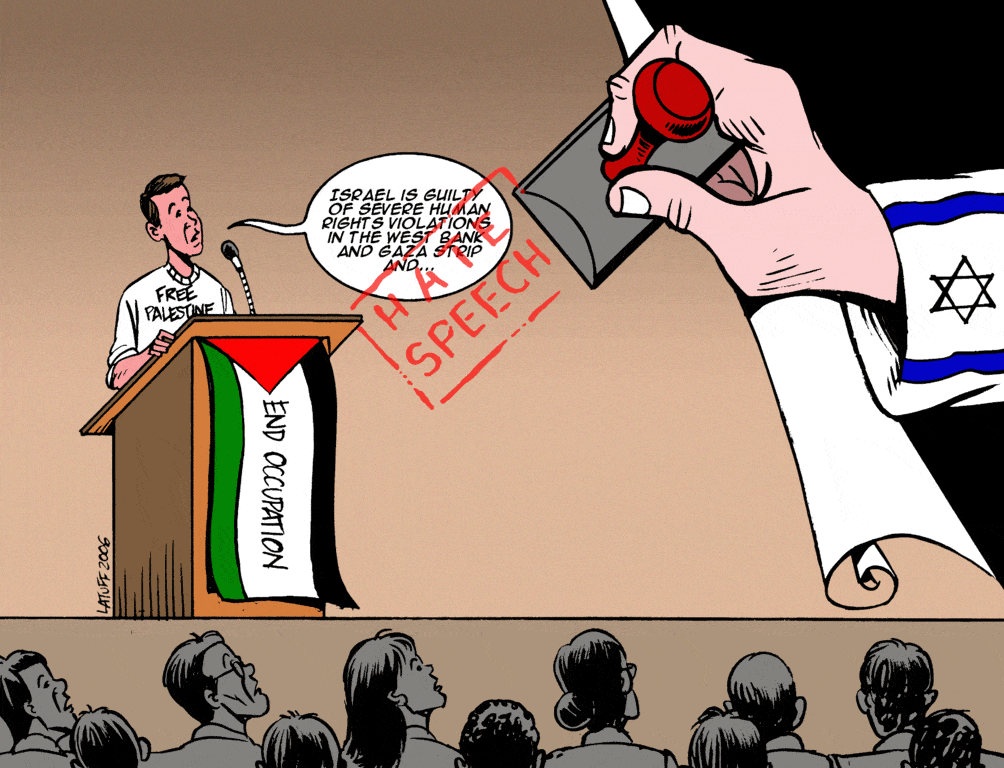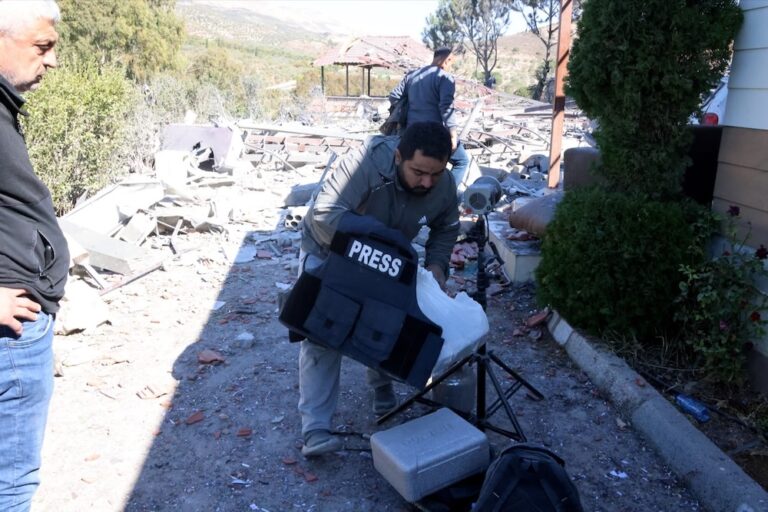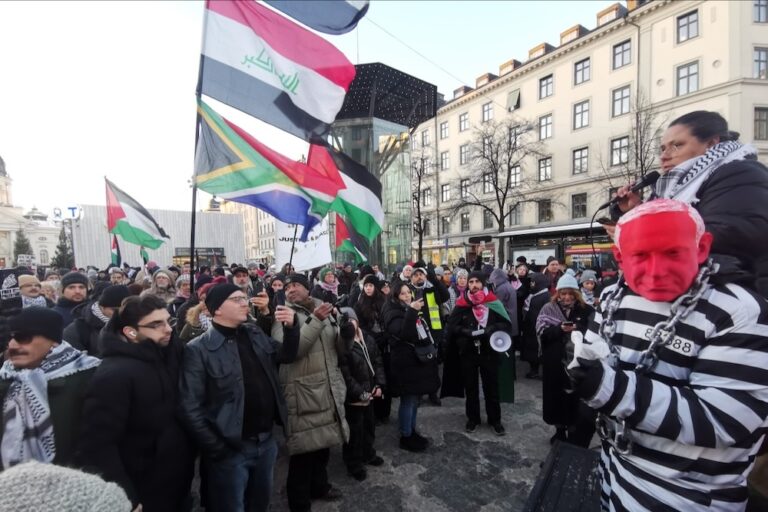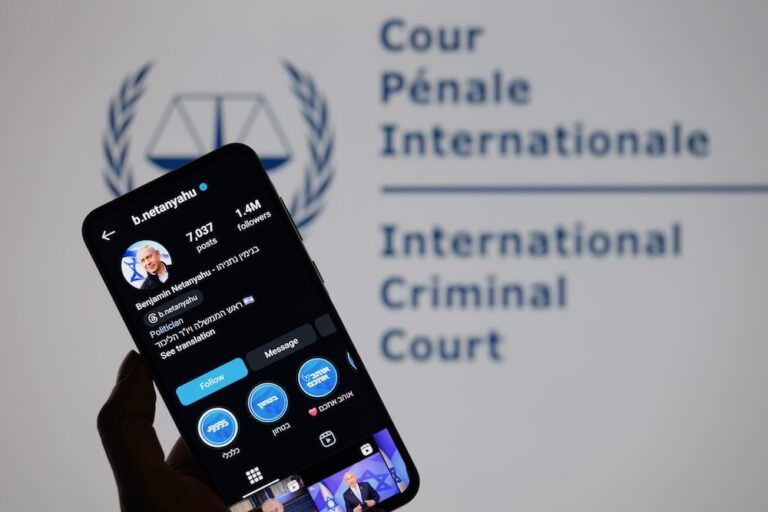The Israeli Knesset passed a first reading of a controversial new bill that would allow courts to remove online content it deems “inciting”.
This statement was originally published on globalvoices.org on 13 January 2017.
Written by Marwa Fatfata
The Israeli Knesset passed last week a first reading of a controversial new bill that would allow Israeli courts to order social media companies to remove online content it deems “inciting”.
The “removal of criminally offensive content from the internet”, colloquially known as the “Facebook bill”, allows Israeli administrative courts, at the request of government, to issue orders demanding social media platforms like Facebook and Twitter remove online content considered as incitement to violence. The bill has to go through two more rounds of approval by the Israeli Knesset before it becomes a law.
Facebook’s Community Standards already explicitly prohibit incitement to violence, although there is evidence that the company struggles to enforce this policy evenly across the globe. In addition, the Israeli government has indicated that it already works with Facebook to monitor “inciting” posts. In 2016, a delegation from the US-based social media giant met with representatives from the Israeli government, and both parties agreed to work together to monitor “incitement” on the platform. It remains unclear whether or how a change in Israeli legislation would affect Facebook’s processes regarding content in Israel.
The bill is sponsored by Israeli Justice Minister Ayelet Shaked and Public Security Minister Gilad Erdan, both of whom have previously attacked social media giants for fueling what they describe as Palestinian incitement against Israel, following a surge in violence in October 2015. The mounting frustration due to a failed peace process while Israel continues to occupy Palestinian territories and violate Palestinians’ human rights have exploded into a wave of violence in Jerusalem and the West Bank, leaving at least 220 Palestinians and 30 Israelis dead. Despite the earlier agreement with Facebook, Shaked said it is “important this cooperation will become obligatory.”
According to Israeli media, the new bill defines online incitement as content which “the very posting of is a criminal offense, and whose public visibility has a real potential to put personal, public and national security at risk.”
It is worth noting that Palestinians who are citizens and residents of Israel fall under the jurisdiction of Israeli civil law, while Palestinians who are living in the occupied Palestinian territories fall under a military rule. The legal territorial jurisdiction of the bill remains unclear.
Even though the bill should apply to all citizens of Israel, Palestinians fear that they will continue to be the primary target for arrests and investigations in relation to what they post online. Ironically, Shaked herself, who is driving this bill now, used Facebook in the past to explicitly call for war against Palestinian people and advocate even for the mothers of slain Palestinians to be killed. She was nonetheless appointed as Minister of Justice, despite her post (which has since been deleted, but is accessible at the Internet Archive), which some observers argue is a call for what the the UN defines as genocide.
While the introduction of the bill assures that there will be “instructions and limitations in order to prevent damage to freedom of speech,” the vague definition of what constitutes a threat to public and national security gives an unprecedented green light to state online censorship and surveillance.
Many Palestinians have turned to social media as a non-violent means of expressing criticism and anger over human rights violations, and as a way to simply show the everyday realities of occupation. If passed, the bill could be used to silence this type of speech and thus extend the occupation into the online world.
One prominent case is the detention of Dareen Tantour, a 35-year-old Palestinian poet, for posting a poem on Facebook protesting the murder of three Palestinian children. On 11 October 2015, Israeli police stormed her home in the predawn hours and later charged her with “incitement to violence” and placed under house arrest. In the poem, entitled “resist, my people, resist them,” Tantour writes:
In Jerusalem, I dressed my wounds and breathed my sorrows
And carried the soul in my palm
For an Arab Palestine.
I will not succumb to the “peaceful solution,”
Never lower my flags
Until I evict them from my land.
I cast them aside for a coming time.
Resist, my people, resist them.
Resist the settler’s robbery
And follow the caravan of martyrs.
In a solidarity campaign with Dareen, Salil Tripathi, chair of PEN International’s Writers in Prison Committee, said:
“The charges leveled against Dareen Tatour are serious, and the Israeli state wants to make the case that her words have directly led to specific violent incidents. But Israel has shown no such direct linkage. All Dareen Tatour has done is to have written a poem. She should never have been under house arrest…”
Dareen is not alone. Between October 2015 and January 2016 alone, Israel arrested 150 Palestinians on the grounds of ‘incitement through social media,’ according to a report by 7amleh, the Arab Center for Advancement of Social Media.
The Defence for Children International-Palestine also reported that Israel has illegally put dozens of Palestinian children under administrative detention, because of what they posted on Facebook. They were interrogated and imprisoned for months without the presence of a parent or a lawyer.
In September 2016, Palestinian activists documented numerous suspensions of personal Facebook accounts of Palestinian journalists and media pages. Four editors at the Palestinian Shehab News Agency and three journalists from Al Quds News Network, which both have millions of followers, had their personal accounts closed. Supporters responded, protesting online under the hashtag #FBCensorsPalestine. Facebook later apologized for the suspension explaining that it was mistake.
Israelis too are concerned about the bill. Tehilla Shwartz Altshuler, head of the Israel Democracy Institute’s Center for Democratic Values and Institutions, told Bloomberg that the bill is “an assault on freedom of expression on an international scale,” and needs to be substantially revised. In an interview with the Jersualem Post, MeyTal Greiver-Schwartz from the Israel Internet Association warned that the bill would “enable the removal of legitimate content, as they only include vague and general terms – such as ‘danger to the public or nation’ – that can be interpreted very broadly.”
It is also unclear what impact the bill will have for political figures and parties in Palestine. A few days after the passing of the first reading of the bill on 3 January, Palestinian activists reported that Facebook had shut down around 30 personal accounts and 90 other Facebook pages, which are believed to be affiliated with the Islamic Resistance Movement, Hamas. Hamas recently commemorated the 21st anniversary of the assassination of its fighter Yaha Ayyash, the first bomb engineer of Hamas’ military wing, who was assassinated by Israel in 1996. Celebrated widely in Palestine as a hero, Hamas supporters posted “Be Like Ayyash” on Facebook in his memory.
The shutdowns may have resulted from Facebook’s Community Standards, which prohibit the presence of what it calls ‘dangerous organizations’ that are engaged in terrorist or organized crime activities. Both the Israeli and the US governments list Hamas as a terrorist organization.



